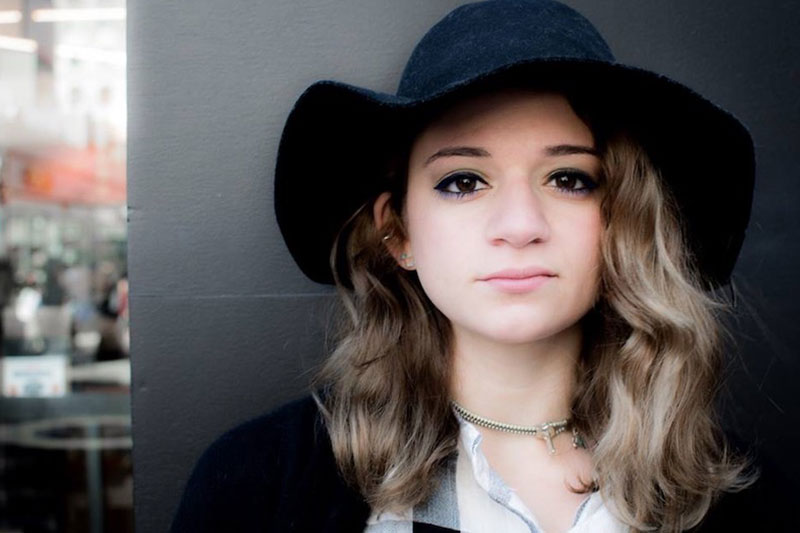Charly is one of the senior mentors at Ivy Scholars, and has been with the company since 2018. She’s helped many students get into their top schools, and has worked doing test prep, candidacy building, and college apps advising. We decided to sit down with her, and ask her some questions about her experiences, to learn how she came to be such a wonderful mentor.
You’ve helped many students on their college apps journey. Did you have any form of that while you were in high school?
Not really? I was homeschooled, and always involved in a lot of activities, but it wasn’t part of any organized candidacy building effort. My parents were very active in helping me plan for college, but it was always this expected thing. We did have an organized approach, but it wasn’t quite what we do with our Ivy Scholars students.
I did do a fair bit of test prep for the SAT and ACT, and then ended up working doing test prep tutoring while still in high school. I also went on a lot of college visits, since every time we traveled when I was a kid my parents would make time to visit a local college campus.
You were homeschooled? What was that like?
I attended an accredited online public high school, so it was a lot easier for me to prove to colleges that I was academically qualified than it is for a lot of homeschooled students. I participated in a lot of extracurriculars, and that took up a lot of my free time. Generally, there were high expectations on me, but that was normal. I did get a lot more freedom to explore my interests than a lot of high school students.
What all did you do?
I did competitive dance, gymnastics, and piano, plus volunteering and working doing test prep tutoring like I mentioned. Gymnastics probably took up the most time. I enjoyed doing all of it, but it was certainly a lot sometimes. That’s part of the reason I was homeschooled; training for gymnastics at a high level requires long hours of dedication, and homeschooling gave my schedule the flexibility I needed.
So how did you handle college applications when it came time?
I was heavily recruited for gymnastics, so that definitely shaped my college application process. I also applied for schools outside of just recruitment, but I knew that I wanted to keep doing gymnastics in college, so that definitely colored my approach.
I started getting recruited and doing unofficial college visits while in freshman year of high school, and kept doing it through sophomore year. It starts earlier for gymnastics than most sports, since gymnasts tend to peak earlier. It helped that I was doing so well academically on top of being a strong athlete; that definitely opened up more recruiting options.
I knew I was interested in the Ivy League and other top schools, but ended up finding a lot of places I never would have considered otherwise because they recruited me.
So how’d it turn out?
I got into a number of schools, including Cornell, but ended up attending Rutgers. They recruited me heavily, and offered a full-ride scholarship, which Cornell did not. I was recruited by other schools, including Alabama, which had an amazing gymnastics program, but Rutgers had the right mix of academic offerings and gymnastics in the end. (Plus the full ride scholarship, that definitely helped).
What did you end up studying at Rutgers?
I started as a dual major in philosophy and piano performance. I worked really hard to prepare for the piano performance major, but it ended up not being for me; instead I minored in music, dance, and creative writing while majoring in philosophy.
I’d always been curious about the big questions so to speak, and during my gap year I took a course on intro to philosophy. I was hooked, and never looked back after that.
So a major and three minors? And gymnastics? How?
Honestly, looking back, I’m not sure sometimes. I had practice from 8:30-12:30 five days a week and traveled every weekend during the season for gymnastics, and it felt like every moment I wasn’t practicing I was in class. It was definitely a lot, but I enjoyed it. I may have done some things differently in retrospect, but I did have fun.
I think the only reason it worked was I came into college with a lot of AP credits, which got me out of almost all of the general education requirements at Rutgers. I still had a few, but being able to just avoid so many courses, and jump right into major and minor requirements, definitely helped.
What did you enjoy most at college?
Coming from homeschool, being in an environment surrounded by other students who were academically engaged and interested in learning was a major change, and I enjoyed it immensely. I found a new community there; I joined a philosophy honors society, started a music club, and just found a new freedom to explore my passions, academic and otherwise, that you just don’t get in high school.
What do students have to look forward to when they go to college?
Definitely an increase in freedom. In college, you do still have to take some courses or do some things you don’t want to, but you have much more freedom to set your own schedule and choose your own priorities, both in terms of what classes you take and what activities you do outside of class.
What made you want to be a mentor?
I had a good amount of experience in adjacent roles already; I started SAT tutoring while still in high school, and I tutored a number of fellow students while in college. Becoming an SAT tutor after I graduated was a natural progression. I started just doing SAT tutoring at Ivy Scholars, but soon moved to doing candidacy building and college applications mentoring.
I enjoyed helping students with college apps because it allowed for a great deal of creative expression, while still having a concrete goal and process to structure it.
Are there any common mistakes that you see students making?
A very common mistake I see, especially when working with students who’ve already completed a draft of their essays, is being super vague with their descriptions. There’s a lack of specificity, where students talk around what they did, or describe it roughly, without getting into the details. The details are what’s important; they’re what make your essay unique and what allows it to stand out to admissions officers.
The other mistake I see a lot is students spending a lot of time in their essays describing people or things other than themselves. A personal statement is about you, but I see a lot of essays where students take three paragraphs just to set everything up, and then only talk about themselves at the very end. You need to tell colleges who you are, and that means talking about yourself in your essays.








